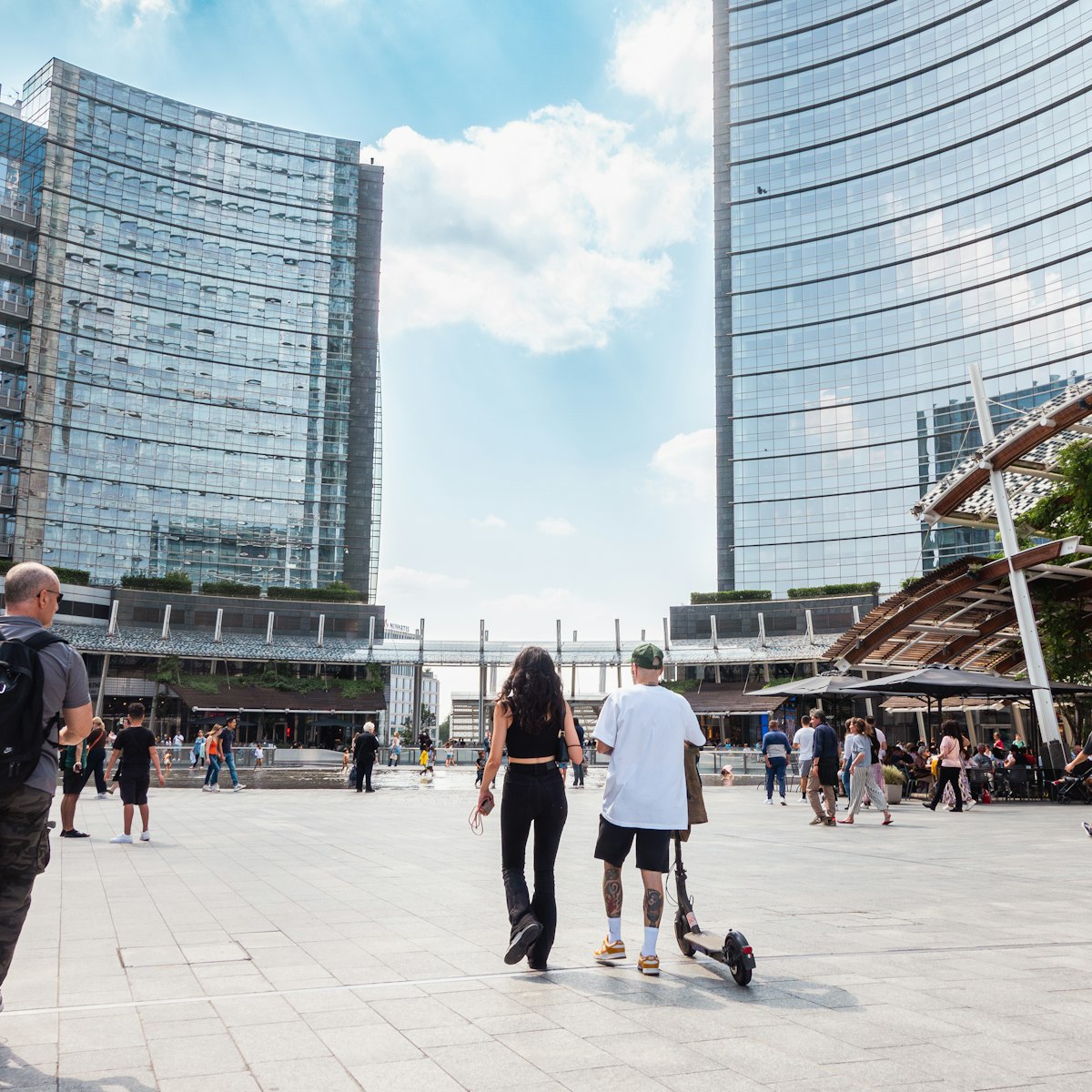Originally a Visconti fortress, this iconic red-brick castle was later home to the mighty Sforza dynasty, who ruled Renaissance Milan. The castle's defences were designed by the multitalented da Vinci; Napoleon later drained the moat and removed the drawbridges. Today, it houses seven specialised museums, which gather together intriguing fragments of Milan’s cultural and civic history, including Michelangelo’s final work, the Rondanini Pietà, now housed in the frescoed hall of the castle's Ospedale Spagnolo (Spanish Hospital).
Of the museums, the most interesting is the Musei d'Arte Antica (Museum of Ancient Art), which is displayed in the ducal apartments, some of which are frescoed by Leonardo da Vinci. Included in the collection are early paleo-Christian sculptures, the superb equestrian tomb of Bernarbò Visconti and sculpted reliefs depicting Milan's triumph over Barbarossa. The exhibit eloquently tells the story of the birth of Italy's first city comune through murderous dynastic and regional ambitions, which made this one of the most powerful courts in Europe.
On the 1st floor, the Museo dei Mobile (Furniture Museum) and Pinacoteca (Picture Gallery) blend seamlessly, leading you from ducal wardrobes and writing desks through to a collection of Lombard Gothic art. Among the masterpieces are Andrea Mantegna's Trivulzio Madonna, Vincenzo Foppa's St Sebastian and Bramantino's Noli me tangere (Touch Me Not). The furniture display continues on to the late 20th century, touching on design greats such as Ettore Sottsass and Giò Ponti on its way.
Free entry is offered every first Sunday of the month and from 2pm every first and third Tuesday. To tour the castle battlements and underground rooms, consider a tour with Ad Artem.








